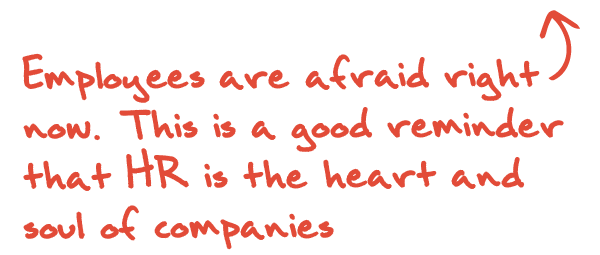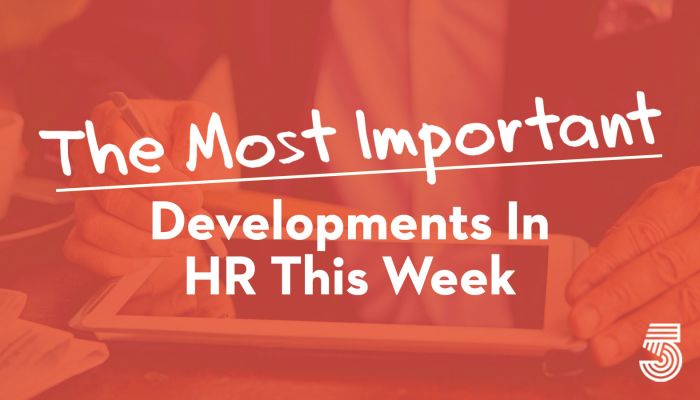
This week, House Speaker Nancy Pelosi and Treasury Secretary Steve Mnuchin held marathon talks about the contents of the Families First Coronavirus Response Act, but multiple House aides previously told Time that the paid sick leave provisions were a sticking point. Early Saturday, the House passed a version of the bill that includes some temporary paid sick leave provisions. The Senate subsequently passed the amended legislation on Wednesday, and President Donald Trump signed the bill into law hours later. If you work for the government, or for a company with fewer than 500 employees, you will be eligible for two weeks of sick leave at your regular pay rate to either quarantine, or to seek a COVID-19 diagnosis or preventive care for yourself. You will also be eligible for two weeks of paid sick leave at no less than two-thirds your regular pay rate if you are caring for a family member with a COVID-19 diagnosis, or to care for a child whose school or daycare has closed as a result of coronavirus concerns. Full-time employees will be entitled to 80 hours’ worth of paid sick time. Part-time employees will be entitled to the number of hours they normally work in a two-week period. Time
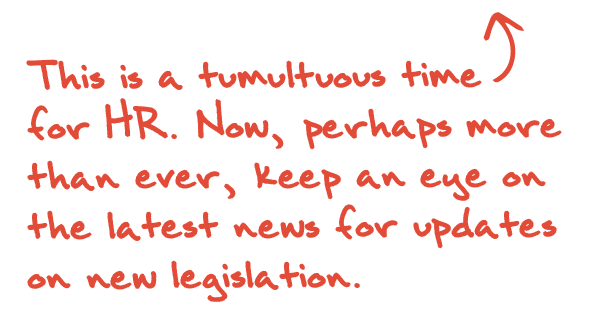
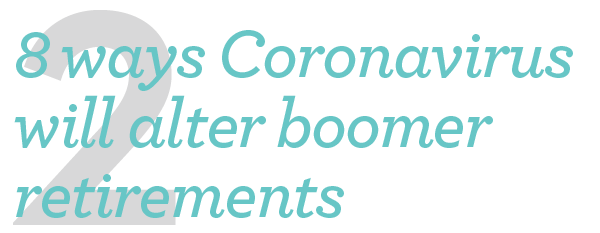
Eventually, the economy and the stock market will recover and COVID-19, the disease caused by the novel coronavirus, will be contained. Yet the current pandemic and its economic consequences could devastate the retirement prospects of some baby boomers, while permanently changing the attitudes of many more. “This is going to leave a real imprint on the minds of people who are near or in retirement,’’ says Joseph Coughlin, director of the Massachusetts Institute of Technology AgeLab. “It’s a personal health 9/11 for much of the country.” Consider this: After years of hearing how 60 is the new 40, boomers are now being told that those as “young” as 60 have weaker immune systems and face greater risk from the novel coronavirus, particular if they have certain other health problems that increase with age. Much will depend, of course, on how severe and prolonged the pandemic is; how long the bear market that began March 11 lasts; and how deep a recession is caused by the shutdowns and social isolation steps needed to slow the virus’s spread. Forbes
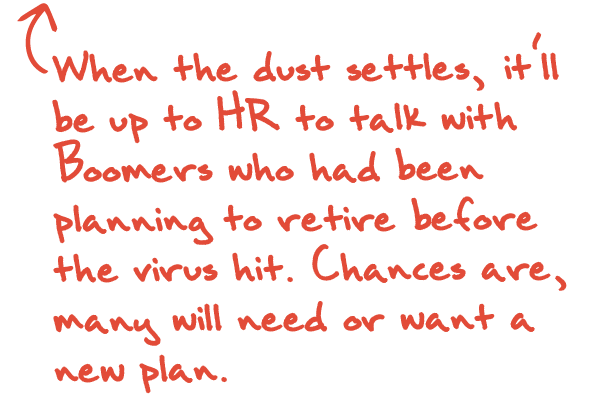
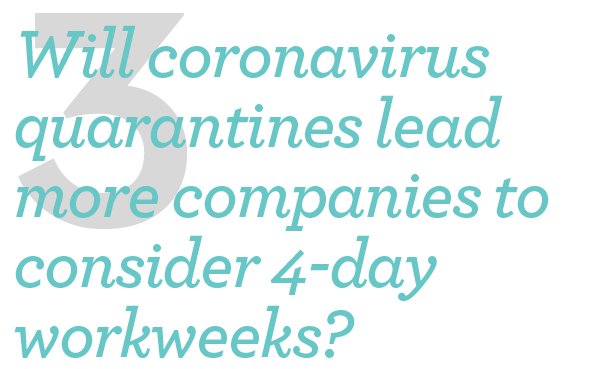
As the coronavirus crisis forces more companies to participate in a massive experiment in remote working, it raises questions about how work might change when the health crisis passes, and if companies may be more open to alternative forms of working in the future — including not just letting employees work from home but allowing new variations in schedules, such as the four-day workweek. “Often when companies don’t allow remote work, it has to do with not necessarily a lack of trust in the person, it’s a lack of trust in the process,” says Amy Balliett, CEO of Killer Visual Strategies, a creative services firm that shifted to a four-day workweek in 2017 and also allows remote work. “They’re so used to a very specific traditional process of work that they’re worried about what happens when that process shifts. I think what we’re about to see, as all of these companies that have been set in that tradition for so long are forced out of it, is that there’s going to be a new level of trust and a new willingness to consider alternatives to the traditional going to the office nine-to-five.” Companies that have adopted four-day workweeks have found, repeatedly, that productivity doesn’t decline even when people work fewer hours. Fast Company
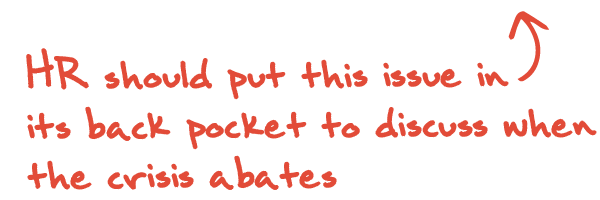

“As the pandemic unfolds, employers are entering new legal territory. The spread of the novel coronavirus (COVID-19) has sparked conversations among employers concerned about the well-being of their teams. Here are some common questions employers are asking during this outbreak, which has been deemed a pandemic by the World Health Organization. Can I legally restrict visitors to the workplace amid coronavirus concerns? While you likely have the right to insist that anyone who has a fever or flu symptoms not visit your work facilities, it is advisable to ensure that any such policy is applied uniformly across all demographic groups. This includes contractors, vendors, and visitors. A posted policy should be visible to anyone entering your facility. You may wish to consider a hand-held temperature-screening device, provided the use of such a device is legal in your state. A local lawyer can help you determine what is legal and appropriate in your specific situation. HR Executive
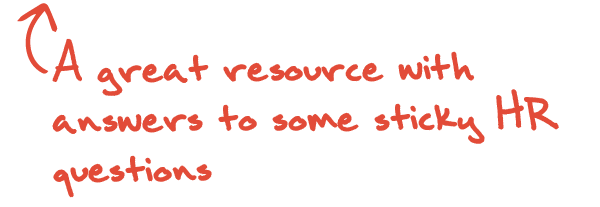

Over the last few weeks, the environment has changed dramatically when it comes to work and life. We have to deal with the logistics of this from a work perspective because HR is often the hub of policies around working remotely or being flexible for those that have personal needs that limit their availability for work during emergencies. However, I can’t stress enough the need to embrace compassion for our people. Before I jump into some of the tactical ideas to help support your employees during this time, I want to point out something for those (you or your employees) that might not be accustomed to working from home. When you’re in an office, you have a fairly rigid schedule and setup. At home, that’s not the case. One of the biggest challenges for many, even though it technically shouldn’t be different than working in an office, is prioritizing what to do. For those things that you find hardest to do because of their greater demand on mental capacity (creative work, strategy meetings, etc.), do those earlier in the day or when you have uninterrupted time (which will be a challenge for those with kids at home during crisis times). For those things that require less mental energy (responding to emails, for instance), save those for later in the day when you are naturally in a lower state of focus. SHRM
